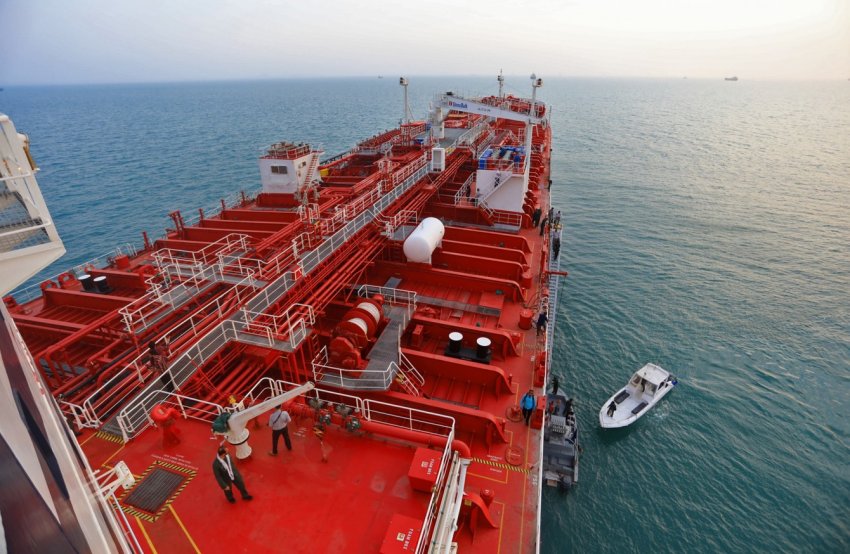
The United States and Britain are ensuring that tensions remain high in the Straits of Hormuz as they continue beating the drums of war against Iran.
A second British warship arrived in the Strait of Hormuz on July 29, tasked with escorting British-flagged commercial vessels between the Gulf of Oman and the Persian Gulf.
This latest escalation follows a number of incidents since June 13 when two oil tankers (one Japanese, the other Norwegian) were hit by explosives and caught fire. The US immediately blamed Iran for the attacks, accusing it of trying to disrupt oil supplies.
A few days later a US spy drone was shot down over Iran. The Trump administration claimed it was over international waters.
These incidents sparked a dangerous series of events bringing the US to within minutes of war with Iran on June 20 when President Donald Trump authorised a missile strike and then changed his mind.
British Royal Marines — allegedly at the behest of the US — seized the Iranian tanker Grace 1 off Gibraltar on July 4. According to the British government, it was suspected of transporting Iranian oil to Syria, in defiance of European Union sanctions.
A week later, on July 10, Iranian revolutionary guard boats allegedly tried to intercept a British oil tanker passing through the Strait of Hormuz but were prevented from doing so by a British navy ship. Iran has denied this is what happened.
Then, on July 19, Iran seized the British flagged HMS Stena Impero as it was sailing through the Strait of Hormuz. According to Iran, it had collided with another vessel and violated international maritime rules.
According to the July 29 Guardian, Iranian president Hassan Rouhani indicated that the captured Stena Impero could be released if the UK returns Grace 1 to Iran. However British foreign secretary Dominic Raab is reported to have ruled this out.
Britain’s Stop the War Coalition released the following statement on July 21 in response to the seizure of the Stena Imperio.
***
The crisis over the British tanker seized by Iran can only be resolved by some honest accounting on the part of the British government.
There is only one reason why it was seized: in retaliation for the seizure of the Grace 1 off Gibraltar. That Iranian tanker, filled with oil, was allegedly on its way to Syria. It was captured by Royal Marines — according to the Spanish foreign minister at the behest of the US — accused of breaking EU sanctions on Syria.
This can hardly have been a legal act, since EU sanctions apply to the 28 member states and cannot apply to Iran which is manifestly not a member of the EU.
It was an act of piracy which Britain carried out to please John Bolton, Trump’s hawkish neocon National Security Adviser, who has long wanted war with Iran.
The consequences were all too predictable and now guess what — Iran has retaliated. It did so after supposedly successful negotiations took place in London last week to release the Grace 1, but then a Gibraltar court ruled on Friday to detain her for another month.
Both tankers should of course be released, as should their crews who are being held. But we should recognise that this is bringing us very close to war. Supposed solutions to this situation, including further sanctions on Iran or more military convoys in the Strait of Hormuz, are only likely to make the situation worse.
In addition there is distrust of Britain which has a long history of interference in Iran, including its role in the overthrow of the elected Prime Minister Mossadegh in 1953, and support for the Shah who was overthrown in 1979.
Britain has ruled out military options for now, in reality because it has few such viable options, but the US is a different matter.
It bears responsibility for the last year of rising tensions, following its withdrawal from the nuclear deal with Iran and its imposition of draconian sanctions which are hitting Iranian people very hard. Trump is trying to destroy Iran’s economy and oil industry in order to achieve regime change.
Whatever one’s views on the Iranian regime, and there are many oppose it for a variety of reasons, it is up to the Iranian people to decide their government, not Donald Trump, John Bolton or Boris Johnson. These are the people who have supported every war, refused to apologise for Iraq and now want to lay waste to another large part of the Middle East.
We cannot allow that to happen.